Insiders
How can you stay safe on your post-coronavirus trip?

The global coronavirus pandemic has left several of us distressed as we are forced to hit pause on our travel plans and stay home. But there might be a surge in traveling once countries around the world reopen their borders.
If you are making travel plans, make sure you are in line with the safety guidelines issued by both international and local authorities. You can also follow these helpful tips if you want to avoid contracting Covid-19 on your trip.
Test yourself: If you are showing signs of the virus, get yourself tested. If you are waiting for your test results, the best thing to do is postpone your trip.
Have your medical and travel history ready: This might come in handy as destinations are expected to check your medical and travel history to make sure you and others around you are safe, and to ensure that the chances of you catching the virus are slim to none.
Carry all essentials: Get yourself a couple of face masks and gloves. Carry hand sanitisers and wet tissues with you at all times.
Practise social distancing: Don’t stand too close to people or linger in areas which are busy; keep a distance of six feet (two metres) at all times, if possible.
Avoid touching stairs, buttons and similar things with your bare hands: Always wear gloves when you are opening doors, handling luggage or even operating lifts.
Avoid sneezing in your hands: Sneeze into a tissue (and later dispose it safely) or into your elbows.
Be informed: Keep up with statistics, check the World Health Organisation guidelines, and check the safety requirements put in place by the country you are traveling to.
The Maldives is preparing to reopen its borders to visitors in July.
The country’s tourism ministry has drafted and invited comments from industry stakeholders on its own guidelines on reopening the borders.
The coronavirus outbreak has hit the Maldivian economy hard, as travel restrictions and other preventive measures affect the country’s lucrative tourism industry, which contributes the bulk of the island nation’s state revenue and foreign reserves.
All international airlines have suspended scheduled operations to the Maldives, as the island nation enforced a blanket suspension of on-arrival visa in late March in a bid to combat the spread of the novel coronavirus.
Cruise ships and foreign yachts were also banned from docking at any of the country’s ports.
Before the pandemic, the government had been bullish about tourism prospects, targeting two million, high-spending holidaymakers this year after last year’s record 1.7 million.
However, tourist arrivals saw a year-over-year decline of 22.8 per cent in the first 10 days of March. Officials say the number of tourist arrivals to the Maldives could drop by half in 2020.
With arrival numbers falling and the visa suspension in effect, several resorts across the Maldives had been closed.
Tourism has been the bedrock of the Maldives’ economic success. The $5 billion-dollar economy grew by 6.7 per cent in 2018 with tourism generating 60 per cent of foreign income.
However, the government is at present projecting a possible 13 per cent economic contraction this year — an estimated $778 million hit.
On March 8, Maldives reported its first cases of the novel coronavirus, as two hotel employees tested positive for Covid-19 at a luxury resort in the archipelago.
Eighteen more cases — all foreigners working or staying resorts and liveaboard vessels except five Maldivians who had returned from abroad — were later identified.
A six-case cluster of locals, detected in capital Male on April 15, confirmed community transmission of the coronavirus. Several more clusters have since been identified, bringing the total number of confirmed case in the Maldives to 1,883.
Seven deaths have been reported and 717 have made full recoveries.
The Maldives announced a state of public health emergency on March 12, the first such declaration under a recent public health protection law.
The public health emergency declaration has allowed the government to introduce a series of unprecedented restrictive and social distancing measures, including stay-at-home orders in capital Male and its suburbs, a ban on inter-island transport and public gatherings across the country, and a nationwide closing of government offices, schools, colleges and universities.
Non-essential services and public places in the capital such as gyms, cinemas and parks have also been shut.
Restaurants and cafes in the capital have been asked to stop dine-in service and switch to takeaway and delivery.
A nationwide shutdown of all guesthouses, city hotels and spa facilities located on inhabited islands is also in effect.
Photo: The St. Regis Maldives Vommuli Resort
Action
Freediving with tiger sharks: Shark Expedition Fuvahmulah collaborates with marine biologist Andriana Fragola

Shark Expedition Fuvahmulah, renowned for its world-class scuba diving encounters, has announced an exciting expansion: the chance to freedive with tiger sharks in the Maldives’ southernmost atoll.
Fuvahmulah, often hailed as the “Tiger Shark Capital of the World,” is the only place on the planet where year-round encounters with tiger sharks are virtually guaranteed. With more than 280 identified resident tiger sharks, the island has become a bucket-list destination for divers and marine enthusiasts alike.
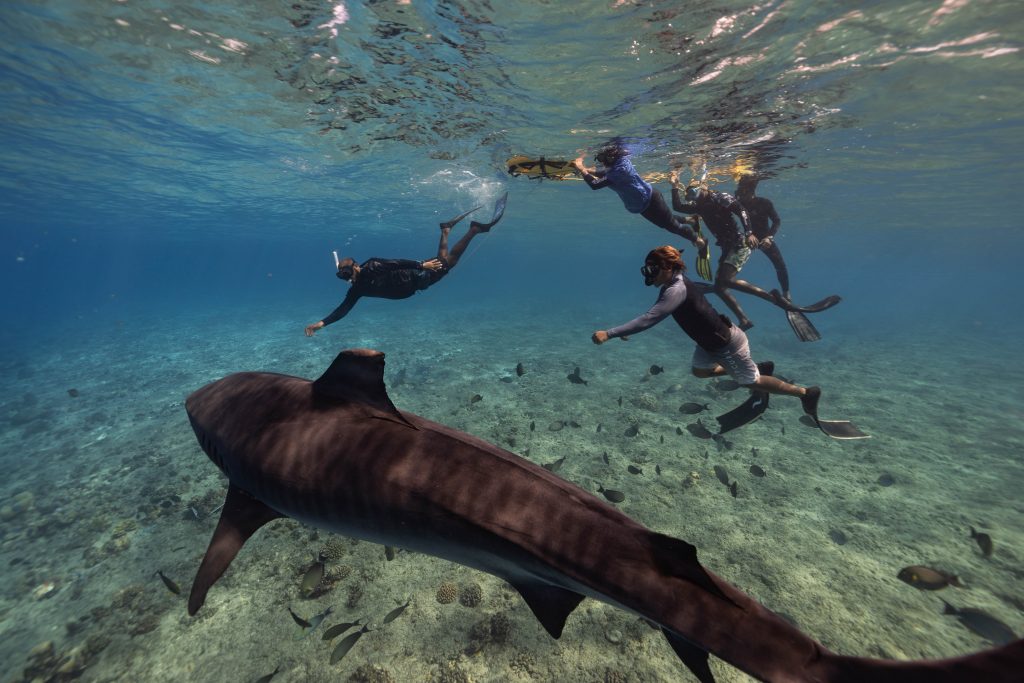
The newly introduced freediving experience offers a unique way to interact with these apex predators. Unlike scuba diving, freediving takes place without bubbles or heavy gear, allowing participants to connect with tiger sharks in a quieter, more natural way. This approach often makes the encounter more comfortable for the sharks and more intimate for the diver.
Guiding these expeditions is Andriana “Andy” Fragola, a marine biologist, shark diver, and conservationist currently based in Hawaii. Andy holds a Master’s Degree in Marine Conservation Biology with a focus on shark microbiology and has dedicated her career to shark research, conservation, and public education. Through her work in media and content creation, she strives to raise awareness about the importance of shark conservation and inspire people to take action to protect marine ecosystems.
“Freediving with tiger sharks is a raw and transformative experience,” says Andy. “Being eye-to-eye with these incredible animals without the barrier of scuba gear allows you to see them for what they truly are—powerful, intelligent, and essential to the health of our oceans.”
Shark Expedition Fuvahmulah ensures that all freediving activities are conducted under strict safety protocols. With experienced professionals like Andy leading the dives, participants can expect both an exhilarating and responsible adventure.
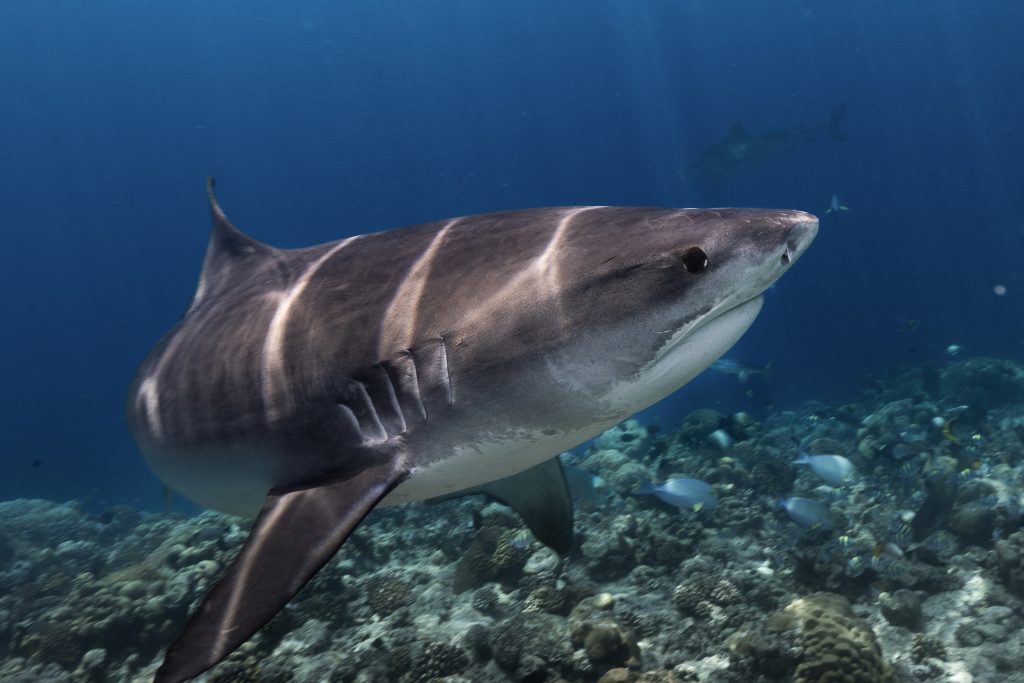
Why this experience stands out:
- Eye-to-eye encounters with tiger sharks in their natural habitat.
- A deeper, more personal connection with marine life.
- Expert-led guidance ensuring safety and conservation awareness.
In addition to freediving, Shark Expedition Fuvahmulah offers a range of packages, including accommodation options, making it easier for adventurers to fully immerse themselves in the island’s extraordinary marine environment.
For bookings and more information:
📧 Email: sales@scuba-expeditions.com
📱 WhatsApp: +960 9894653
🌐 www.scuba-expeditions.com
News
MIC appoints Ali Shakir as Group General Manager

Maldives Inflight Catering Pvt Ltd (MIC) has announced the appointment of Ali Shakir as the Group General Manager. With over 27 years of experience in the hospitality industry, Ali Shakir will now oversee operations for the Maldives Inflight Kitchen, Hulhule Island Hotel, and Madifushi Private Island Maldives.
Ali Shakir, who most recently served as General Manager at OBLU NATURE Helengeli by SENTIDO, played a pivotal role in the resort’s redevelopment and reopening. Prior to that, he joined Atmosphere Core in 2019 as Resort Manager at VARU By Atmosphere, where he was instrumental in the pre-opening of several properties, including OBLU XPERIENCE Ailafushi, OBLU SELECT Lobigili, OZEN RESERVE BOLIFUSHI, and VARU By Atmosphere. His wealth of experience also includes key positions at prestigious resorts such as Angsana Velavaru, Hulhule Island Hotel, and Paradise Island Resort and Spa.
Ali is no stranger to MIC, having spent more than 15 years at Hulhule Island Hotel, where he rose through the ranks to become Executive Assistant Manager before departing in 2019.
Commenting on his new role, Ali Shakir expressed his enthusiasm:
“I am honored to rejoin MIC and lead the operations of these iconic properties. This company has always held a special place in my career, and I am excited to work with the talented team to drive further success and innovation.”
Ibrahim Shareef Mohamed, Managing Director of MIC, welcomed Ali to the leadership team, praising his extensive experience and strategic vision:
“We are delighted to have Ali back at MIC. His proven track record in the hospitality sector, combined with his in-depth knowledge of Hulhule Island Hotel and his previous achievements, makes him the ideal leader to take us forward. I have no doubt that under his leadership, MIC will continue to set benchmarks for excellence.”
Ali Shakir holds a General Managers Program certificate from Cornell University, USA, and a General Hotel Service certification from the Institute of Hotel and Catering Service, Maldives.
MIC is a joint venture between Maldives Airports Company Limited and SATS Ltd, renowned for its inflight catering services to airlines and private jets. Beyond the Maldives Inflight Kitchen, MIC also manages Hulhule Island Hotel, the only airport hotel at Velana International Airport, and the luxurious Madifushi Private Island Maldives in Meemu Atoll.
Tips & Advice
Flying after scuba diving: Essential guidelines for safe travel

Scuba diving in the Maldives offers an unparalleled experience, with its vibrant coral reefs, diverse marine life, and crystal-clear waters. However, one crucial aspect that divers must consider is the timing of their flights after diving. Understanding the recommended waiting periods before flying is essential to ensure safety and prevent decompression sickness. Here’s what you need to know.
Understanding Decompression Sickness
Decompression sickness, also known as “the bends,” occurs when nitrogen bubbles form in the bloodstream and tissues due to rapid changes in pressure. This can happen if a diver ascends too quickly or flies too soon after diving. The reduced cabin pressure in an airplane can exacerbate the formation of these bubbles, leading to serious health risks.

Recommended Waiting Times
The waiting time before flying after scuba diving depends on the type and number of dives completed. Here are the general guidelines:
- Single Dive: If you have completed a single, no-decompression dive, it is recommended to wait at least 12 hours before flying. This allows sufficient time for the body to eliminate excess nitrogen.
- Multiple Dives or Multiple Days of Diving: For divers who have completed multiple dives or have been diving over several days, the recommended waiting period extends to 18 to 24 hours. This longer duration helps ensure that nitrogen levels in the body have decreased to safe levels.
- Dives Requiring Decompression Stops: If your dive profile included decompression stops, it is crucial to wait at least 24 to 48 hours before boarding a flight. Decompression dives involve higher nitrogen absorption, necessitating a longer off-gassing period.
Seaplane and Domestic Flights
Many tourists visiting resorts and other islands in the Maldives travel by seaplane or domestic flights. While these flights generally operate at lower altitudes compared to international flights, the same waiting time guidelines apply. The reason is that even at lower altitudes, the risk of decompression sickness remains significant due to the changes in pressure.
Practical Tips for Divers
- Plan Your Dives and Flights: When planning your diving trip, consider your flight schedule. Ensure that you have ample time between your last dive and your flight to adhere to the recommended waiting periods.
- Stay Hydrated: Proper hydration can aid in the elimination of nitrogen from the body. Drink plenty of water before and after your dives.
- Monitor Your Health: Pay attention to any symptoms of decompression sickness, such as joint pain, dizziness, or difficulty breathing. If you experience any of these symptoms, seek medical attention immediately.
- Use Dive Computers: Modern dive computers can help track your nitrogen levels and provide personalized recommendations for safe flying times based on your dive profile.
Flying after scuba diving requires careful consideration and adherence to safety guidelines to prevent decompression sickness. By following the recommended waiting times and taking necessary precautions, divers can enjoy their underwater adventures in the Maldives and travel safely. Always consult with dive professionals or medical experts if you have any concerns about your health and safety.
-
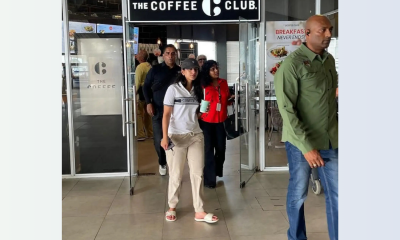
 News6 days ago
News6 days agoAmbani family members holiday in Maldives again
-
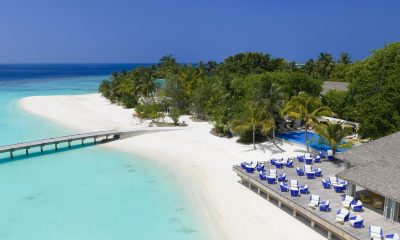
 Featured1 week ago
Featured1 week agoPulse Hotels & Resorts unveils eco-chic Eri Maldives in North Malé Atoll
-
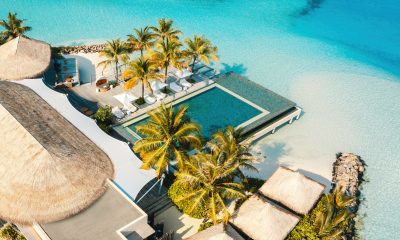
 News1 week ago
News1 week agoInterContinental Maldives unveils luxury experiences designed for solo traveller
-
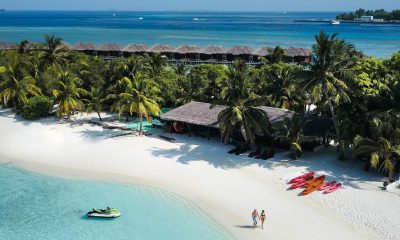
 Featured1 week ago
Featured1 week agoEndless Summer awaits at Sheraton Maldives Full Moon Resort & Spa
-

 Love1 week ago
Love1 week agoFive days of Valentine’s experiences at Cinnamon Hakuraa Huraa Maldives
-
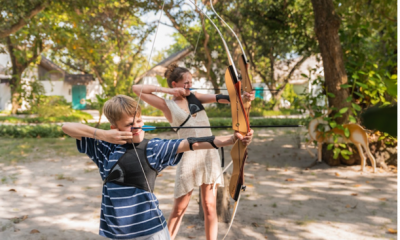
 Featured1 week ago
Featured1 week agoFrom Lunar New Year to Easter: Sirru Fen Fushi reveals seasonal line-up
-

 Featured1 week ago
Featured1 week agoThe Standard, Maldives unveils romantic Valentine’s Day experiences
-

 News6 days ago
News6 days agoMaldives named among world’s top destinations in Tripadvisor’s 2026 awards








